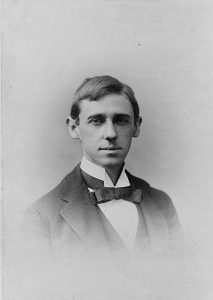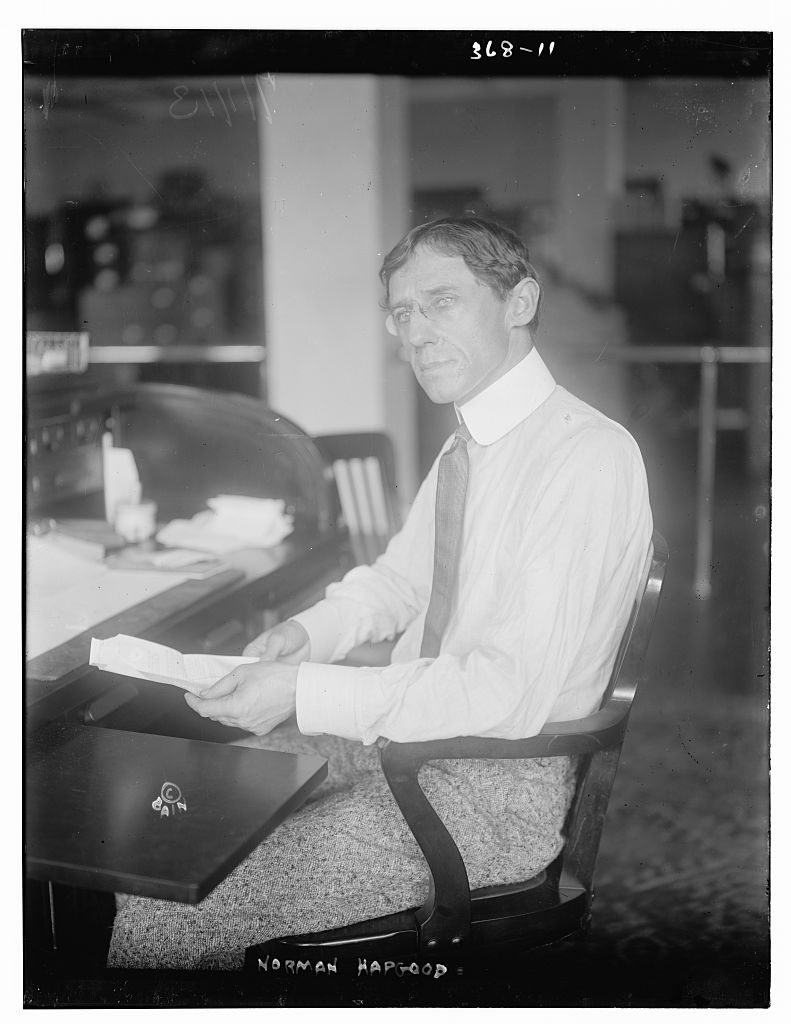
Photo info ...
Credit: Library of CongressView Source
(Mar. 28, 1868-Apr. 29, 1937). Born in Chicago, Norman Hapgood graduated from Harvard College in 1890, where he also received his master’s and law degrees in 1893. After a brief stint at a law firm in Chicago, Hapgood worked for the in 1894 and, later, the and the .

He became editor of magazine in 1903; under his direction until 1912, it assumed a leading role in several reform movements of the time. He edited magazine from 1913 to 1916. An ardent supporter of Woodrow Wilson’s presidency, he served as ambassador to Denmark for one year in 1919. In the September 1922 edition of Hearst’s International Magazine, he exposed the antisemitic views of Henry Ford in his article, “The Inside Story of Henry Ford’s Jew-Mania,” Part 4. He went on to serve as the magazine’s editor from 1923 to 1925.
Hapgood was the largest outside stockholder in the Indianapolis-based , managed by his brother, . He went to work at the concern in 1932 for a year to help in advertising and publicity, and he also served periodically in an advisory capacity. Columbia was widely known and regarded as a leading example of workplace democracy during the 1920s and 1930s. Norman Hapgood discussed the company and its ideals in his autobiography (1930). He died in New York.

Help improve this entry
Contribute information, offer corrections, suggest images.
You can also recommend new entries related to this topic.